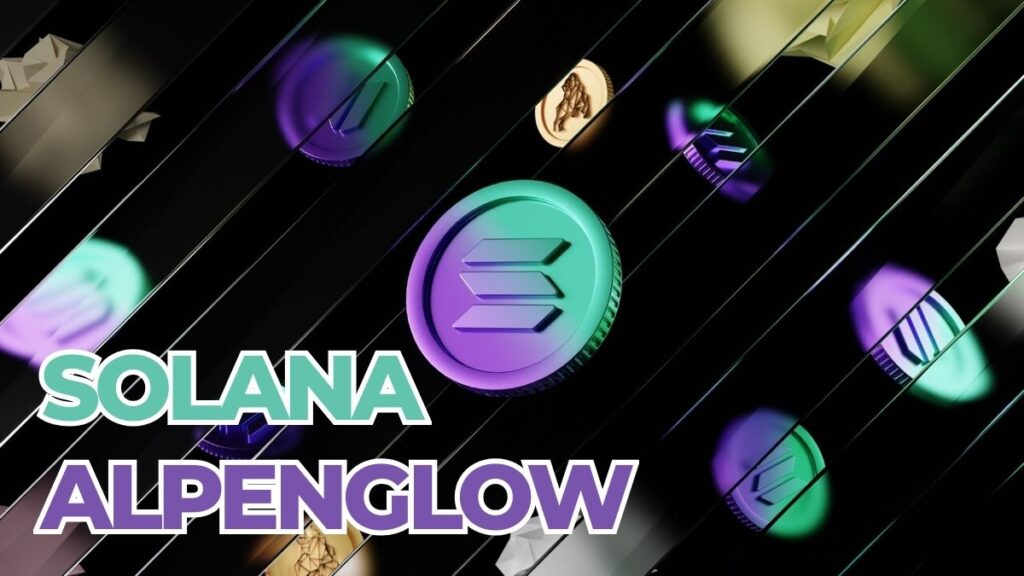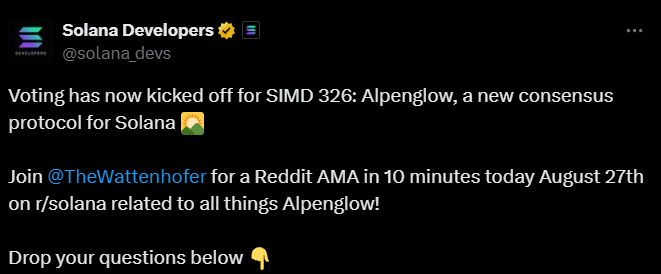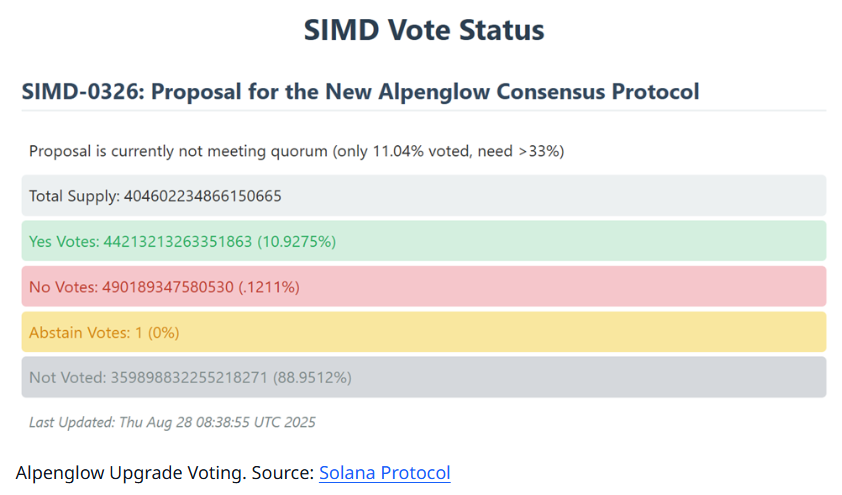TL;DR
- Solana has opened voting on Alpenglow, an upgrade designed to cut block finality from 12.8 seconds to under 200 milliseconds.
- The plan replaces Proof-of-History and TowerBFT with Votor, a direct-voting protocol that strengthens security, reduces technical overhead, and accelerates consensus.
- Alpenglow introduces “20+20” fault tolerance, a 1.6 SOL per epoch fee for validators, and a new rewards model with incentives for producing finalization certificates.
Solana has launched the voting phase for Alpenglow, a proposal that aims to completely overhaul the network’s consensus system.
The upgrade targets a reduction in block finalization time from 12.8 seconds to less than 200 milliseconds, approaching the speed of traditional online applications. To pass, the proposal requires a quorum of 33% and a two-thirds majority of cast votes. Over 10% of validators have already signaled support, but much broader participation will be necessary to approve the update.
What Changes Will Alpenglow Bring?
The plan replaces Solana’s current model, based on Proof-of-History and TowerBFT, with a new protocol called Votor. This mechanism allows validators to finalize blocks in one or two voting rounds, depending on network conditions. Its design reduces data traffic by removing the reliance on gossip-heavy communication and leverages cryptographic aggregation to reach consensus with far less technical overhead. The goal is to combine near-instant speed with stronger security than the existing system provides.
TowerBFT, used until now, delivers slow confirmations and lacks formal safety guarantees, leaving the network exposed to reorganizations and degraded performance. Alpenglow addresses these issues with a “20+20” fault-tolerance model: the system stays live even if 20% of validators behave maliciously and another 20% go offline. It also adds an economic layer that requires each validator to pay 1.6 SOL per epoch through a Validator Admission Ticket. This fee ensures that participants bear a cost and prevents free-riding on the network’s infrastructure.
Solana Redesigns Its Rewards Model
The rewards system also changes. Leaders aggregating votes will earn the same compensation as included validators, and an extra incentive is added for generating finalization certificates. Vote transactions are also removed from each block, lowering costs and reducing bandwidth usage across the network.
The voting process is divided into phases. Epochs 833 to 838 are set aside for discussion, epoch 839 will publish stake weights, and epochs 840 to 842 will distribute voting tokens through a tool developed by Jito. If approved, Alpenglow would place Solana in a privileged position among Layer-1 blockchains, offering near-instant finality without compromising decentralization













